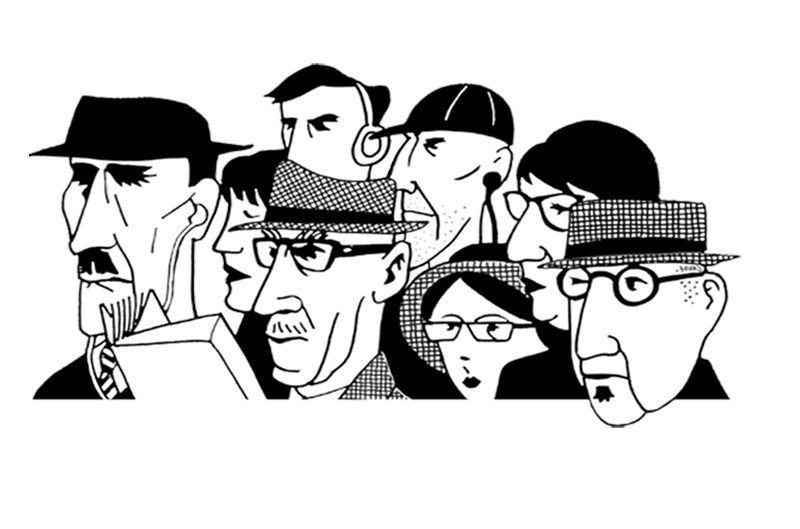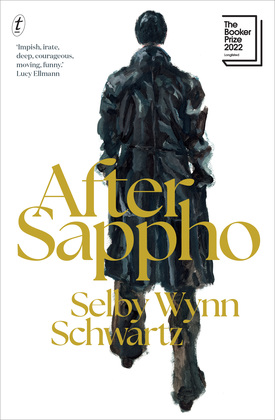After Sappho: Longlisted for the 2022 Booker Prize
Selby Wynn Schwartz
What did we want? To begin with, we wanted what half the population had got by just being born.
It’s 1895. Amid laundry and bruises, Rina Pierangeli Faccio gives birth to the child of the man who raped her – the man she has been forced to marry. Unbroken, she determines to change her name and, alongside it, her life.
Now 1902. Romaine Brooks sails for Capri. She has barely enough money for the ferry, nothing for lunch; her paintbrushes are bald and clotted. But she is sure she can sell a painting—and is fervent in her belief that the island is detached from all fates she has previously suffered.
In 1923, Virginia Woolf writes: I want to make life fuller and fuller.
Told in a series of cascading vignettes, featuring a multitude of voices, After Sappho reimagines the lives of a brilliant group of feminists, sapphists, artists and writers in the late nineteenth and early twentieth century as they battle for liberation, justice and control over their own lives.
Sarah Bernhardt, Colette, Eileen Gray, Lina Poletti: these are just a few of the women (some famous, others hitherto unsung) sharing the pages of a novel as fierce as it is luminous. Lush and poetic, furious and funny, After Sappho celebrates the women and trailblazers of the past—and offers hope for our present, and our futures.
INTERVIEWS and REVIEWS
ABC Radio National: The Bookshelf
Across the Pond podcast
ArtsHub
Booker Prizes
Bookmunch
Complete Review
Conversation
Daily Mail (UK)
First Post
First Post
Foyles: Pride Month Reading List
Guardian
Guardian: Top 10 experimental feminist books (op-ed)
i News
New Statesman
Radio NZ
Readings
Readings
Readings: interview
Telegraph (UK) ($)
Times Literary Supplement ($)
andAfter Sappho
‘This book is splendid: impish, irate, deep, courageous, moving, funny…and truly significant, I think.’
‘It’s brilliant, an unobtrusive, quietly mesmerising, imagined collocation of linked feminist lives that succeeds in delineating a movement bigger than all of them without diminishing any one of them.’
‘Glorious, magnificent, truly liberating…After Sappho is a testimony to those on the margins, the outsiders; to those women who don’t fit in and don’t want to. It is about anyone who has fought, and continues to do so. As a gay man I found myself in its pages. I was another Sappho, too.’
‘This book is dynamite. I have tick marks on every page.’
‘An absolute marvel.’
‘Entrancing…Not just a feminist manifesto, After Sappho is also a testimony to the beauty of women – not in a material sense, but rather in celebration of their intelligence, their strength and their endurance to keep fighting for a better future.’
‘After Sappho is superb. Mesmerising. Such incredible writing. And thinking. Selby Wynn Schwartz tips everyone out of the water.’
‘A glorious, genre-expanding work of fiction… Spell-binding.’
‘Enthralling…A gorgeous celebration of pioneering thinkers who rejected docility and self-abnegation in favour of finding their true selves…[A] sparkling, imaginative gem.’
‘Highly original…[An] entrancing choric collage of a novel which seems to speak both in one voice and in multitudes all at the same time…I loved it.’
‘Drifting and dreamy…I really enjoyed it.’
‘A bold original, story of creativity and freedom…The sentences, crisply flat yet billowing easily into gorgeous lyricism, feel so easily, casually of our time.’
‘Fierce and succinct yet rippling with beautifully observed detail…A book unlike any I have previously read.’
‘Lyrical, scholarly, passionate and entirely unique.’
‘A triumph.’
‘An ecstatic read…Selby Wynn Schwartz gives us a dark herstory; one that is hysterically funny, poetic and maddeningly tender. It is skin and sinew and breath and longing. And becoming.’
‘I have a feeling that as good as this book is on first reading, it will be even better on subsequent readings, such is the density, scope and research that has gone into its making.’
‘Rousing, provocative and elegant…there is inspiration to be found in these spirited reflections…so many of the issues these women faced, fought and sacrificed so much for are still so prevalent now. After Sappho is an ambitious literary project that delivers on its own promise with great stylistic power and verve.’
‘Fascinating and luminously depicted…Schwartz encapsulates a beautiful, longing poesis.’
‘Themes of feminine creativity constantly circle fluid identity…Although the fragments are set a century ago, the novel feels modern and contemporary.’
‘Compelling and engrossing.’
‘Extraordinarily confident and inventive…An urgent manifesto for female emancipation and for the broad church of womanhood.’
‘Enchanting…Unique…Awe-inspiring…In this Greek chorus of a novel, After Sappho joins the ranks of delectable, Woolf-inspired works.’
‘Daring…Revisionary…[After Sappho] takes a lesson from its subjects, women who passed across identities, who defied convention.’
‘Stopped me in my tracks…A very beautiful way to honour these creative people…Radical.’
‘Inventive and elegiac…[Schwartz] opens a wide door to the twentieth-century queer women who dared to think, write, and act according to their own will.’
‘After Sappho, a fiction that contains a multitude of of real women, is seductive, elegiac and unclassifiable…With great finesse, Schwartz conjures the feelings, atmospheres, influences, rumours and desires that emanated from these women and swirled around them…In After Sappho, Schwartz draws lesbians out of anonymity and into history, ensuring that those ignored, excluded or denigrated now and in the future be looked back upon as trailblazers. As Sappho predicted: “You may forget but let me tell you this: someone in some future time will think of us.”’
‘Selby Wynn Schwartz’s After Sappho…plays with form, reclaiming hidden lesbian stories by tumbling together biography, scholarship and poetic flights of fancy…This one-of-a-kind book channels a spirit of righteous anger as well as lyrical freedom and joy.’
‘A gorgeous celebration of those pioneering women thinkers who rejected docility in favour of being more than just “little dolls who danced for the pleasure of their husbands and annihilated themselves”.’
‘A very creative take on the female artist and independent woman in the early twentieth century, After Sappho is thoroughly enjoyable but also thought-provoking literature…Well worthwhile.’
‘[A] powerful genre-bending debut novel.’
‘After Sappho creates a vision of creative, sexual, and romantic connection between women that is as lush and joyful as it is enraged by men’s violence.’
‘Both a history of lesbian modernists told in biographical fragments and a novel made of interconnected stories. The book’s narrator is a chorus, the “we” of feminist modernists, of women writers, of lesbians, of queer readers looking for our reflections in art. I’ve read it so many times my margin notes have margin notes. I bought a copy for my best friend’s birthday and filled it with yet more margin notes. I’ve never read a book that feels so much like a conversation I was somehow already a part of. Beautiful and endlessly inspiring.’




